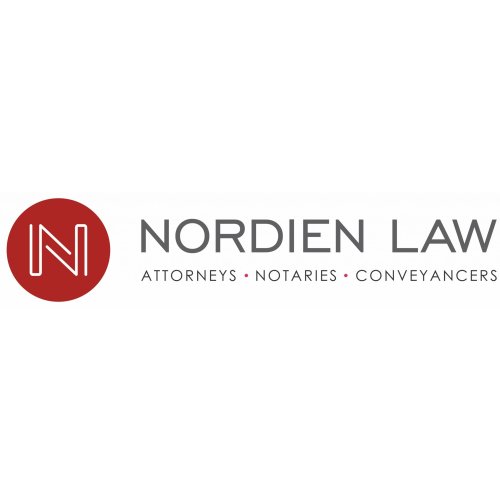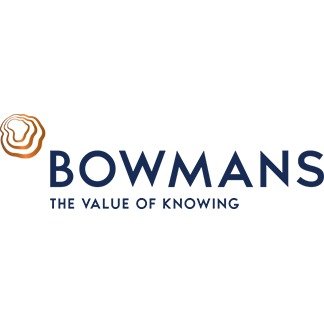Best Structured Finance Lawyers in Cape Town
Share your needs with us, get contacted by law firms.
Free. Takes 2 min.
List of the best lawyers in Cape Town, South Africa
About Structured Finance Law in Cape Town, South Africa
Structured finance refers to complex financial transactions designed to meet specific financing needs, often achieved by pooling financial assets and issuing securities against them. In Cape Town, South Africa, structured finance law governs the creation, management, and regulation of these transactions. Local financial professionals and lawyers frequently work on matters such as securitisation, syndicated lending, project finance, and derivatives. The laws ensure transparency, protect stakeholders, and maintain the integrity of South Africa’s financial markets. Cape Town, as a major commercial hub, regularly sees activity in these areas, handled in accordance with South African statutes and global best practices.
Why You May Need a Lawyer
Structured finance transactions are typically sophisticated, legally intensive, and involve multiple parties and layers of documentation. You may need a lawyer in the following situations:
- Structuring and negotiating a securitisation or asset-backed security
- Drafting and reviewing complex loan agreements
- Facilitating syndicated lending arrangements
- Navigating regulatory frameworks and compliance requirements
- Resolving disputes or enforcing rights in default scenarios
- Advising multinational parties on cross-border transactions
- Repackaging financial assets for investors
- Understanding tax implications and structuring transactions accordingly
- Ensuring due diligence and risk mitigation
An experienced structured finance lawyer can clarify legal risks, structure deals appropriately, and help you avoid costly mistakes.
Local Laws Overview
Structured finance in Cape Town is primarily governed by South African law, which includes several key statutes and regulatory frameworks:
- Companies Act 71 of 2008 - Regulates the formation and governance of companies involved in structured finance
- Financial Markets Act 19 of 2012 - Sets out rules for public offerings and trading of structured financial products
- National Credit Act 34 of 2005 - Impacts credit-related transactions and consumer rights
- Income Tax Act 58 of 1962 - Covers the tax treatment of structured finance transactions
- Regulations by the South African Reserve Bank (SARB) - Deal with exchange control and cross-border financial flows
- Guidance from the Financial Sector Conduct Authority (FSCA) - Provides oversight and enforces standards in the financial sector
Local practitioners must also consider court interpretations, international accounting standards (IFRS), and sector-specific regulations when working on complex deals.
Frequently Asked Questions
What is structured finance?
Structured finance refers to sophisticated financial transactions that use complex legal and financial techniques to manage risk and raise capital, often involving pooling assets and issuing securities.
Which types of transactions are considered structured finance?
Common transactions include securitisation, collateralised debt obligations, syndicated loans, asset-backed securities, and project finance.
Who regulates structured finance in Cape Town?
Key regulators include the Financial Sector Conduct Authority, the South African Reserve Bank, and the Johannesburg Stock Exchange when securities are listed.
Can individuals participate in structured finance deals?
While structured finance transactions are usually executed by corporations, banks, pension funds, and investment entities, sophisticated individuals may participate indirectly through investing in structured products.
How does the law protect investors in structured finance?
South African law provides regulatory oversight, transparency requirements, and investor protections through a framework of statutes and regulatory bodies, ensuring fair treatment and disclosure.
Are there tax considerations in structured finance?
Yes, there are intricate tax implications, including the treatment of income and capital gains. Tax advice is essential when structuring deals under the Income Tax Act and related regulations.
What risks are associated with structured finance?
Risks include credit risk, legal risk, regulatory risk, and operational risk. Legal advice helps identify and mitigate potential issues before finalising any transaction.
What is securitisation and how is it used locally?
Securitisation involves pooling financial assets, such as loans or receivables, and issuing securities backed by those assets. In Cape Town, it is used by banks, retailers, and corporates to free up capital and manage risk.
How do regulations impact cross-border structured finance deals?
Cross-border deals require compliance with both domestic and foreign laws, including exchange control regulations set by the South African Reserve Bank, which adds complexity to such transactions.
How can a lawyer assist with structured finance?
A lawyer provides guidance on structuring deals, drafts and reviews agreements, ensures regulatory compliance, assists with negotiations, and helps resolve disputes, safeguarding clients’ interests throughout the process.
Additional Resources
If you are interested in learning more or need help, consider reaching out to the following resources:
- Financial Sector Conduct Authority (FSCA) - Oversees the regulation of financial institutions in South Africa
- South African Reserve Bank (SARB) - Manages exchange controls and regulates banking activities
- Johannesburg Stock Exchange (JSE) - Provides information and requirements for listed structured financial products
- South African Institute of Chartered Accountants (SAICA) - Offers expertise on accounting and regulatory compliance
- Law Society of South Africa - Directory of qualified lawyers specializing in financial law
- South African Revenue Service (SARS) - Guidance on tax implications for complex financial transactions
Next Steps
If you require legal assistance in structured finance, consider the following steps:
- Identify your specific needs and gather all relevant documentation
- Research local law firms or legal professionals with experience in structured finance in Cape Town
- Arrange a consultation to discuss your objectives, risks, and legal requirements
- Ask about the lawyer’s experience with similar transactions and their understanding of applicable regulations
- Work closely with your legal advisor to structure your transaction, manage compliance, and address potential legal challenges
- Stay informed about ongoing changes in regulations and seek ongoing legal support as required
Taking these steps can help you navigate the complexities of structured finance and protect your interests in Cape Town, South Africa.
Lawzana helps you find the best lawyers and law firms in Cape Town through a curated and pre-screened list of qualified legal professionals. Our platform offers rankings and detailed profiles of attorneys and law firms, allowing you to compare based on practice areas, including Structured Finance, experience, and client feedback.
Each profile includes a description of the firm's areas of practice, client reviews, team members and partners, year of establishment, spoken languages, office locations, contact information, social media presence, and any published articles or resources. Most firms on our platform speak English and are experienced in both local and international legal matters.
Get a quote from top-rated law firms in Cape Town, South Africa — quickly, securely, and without unnecessary hassle.
Disclaimer:
The information provided on this page is for general informational purposes only and does not constitute legal advice. While we strive to ensure the accuracy and relevance of the content, legal information may change over time, and interpretations of the law can vary. You should always consult with a qualified legal professional for advice specific to your situation.
We disclaim all liability for actions taken or not taken based on the content of this page. If you believe any information is incorrect or outdated, please contact us, and we will review and update it where appropriate.
















